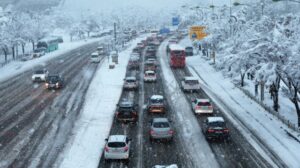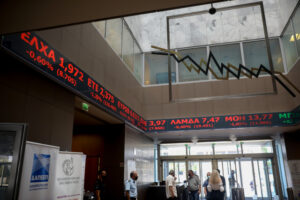South Korea is experiencing heavy snowfall for the second consecutive day, with reports indicating that at least five people have died, dozens of flights have been canceled, and ferry operations have been suspended.
Despite signs of improving weather conditions, yesterday’s snowfall was the third-largest recorded in the capital, Seoul, since records began in 1907, according to the South Korean news agency Yonhap, citing data from the city.
As of 8:00 a.m. local time, over 40 centimeters of snow had blanketed parts of Seoul. Although meteorological officials lifted the heavy snowfall warning for the metropolitan area after 10:00 a.m., the alert remains in effect for other regions in southern South Korea, according to the national meteorological agency.
Yonhap reported that at least five deaths related to the record snowfall were recorded in Gyeonggi Province, which borders Seoul, since Wednesday. Four of these fatalities occurred when structures collapsed under the snow’s weight, and one resulted from a bus accident caused by icy road conditions.
The police also reported that 11 people were injured last night in a 53-vehicle pileup on a highway in the city of Wonju, Gangwon Province, in central South Korea.
The Ministry of Interior stated that 156 flights were canceled, 104 ferry services were disrupted, and 131 power outages occurred nationwide. Media outlets also reported delays in train schedules.
Seoul’s main airport, Incheon, was hit the hardest, with passengers facing average delays of two hours. Flight tracking site Flightradar24 indicated that 31% of flights were delayed, and 16% were canceled today.
In Gyeonggi Province, by midday, 1,285 schools, including kindergartens and daycare centers, were closed, according to local authorities.
This unusually heavy snowfall for November is attributed to warmer-than-normal sea temperatures west of the Korean Peninsula, which collide with cold air currents.
Meanwhile, in neighboring North Korea, more than 10 centimeters of snow fell in some areas between Tuesday and Wednesday, according to the state-run Korean Central Television.
Ask me anything
Explore related questions





